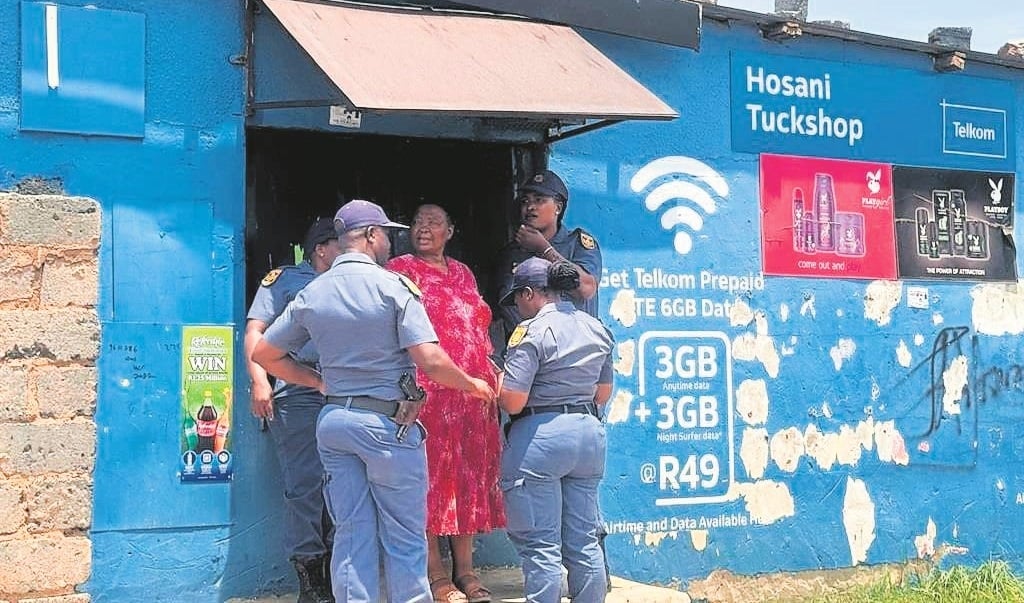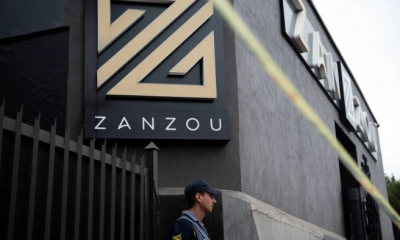411
No Extension for Spaza Shop Registration Deadline: South Africa Enforces Compliance

Today marks the final deadline for spaza shops and other food-handling businesses in South Africa to register with local municipalities. The National Joint Operational and Intelligence Structure (NATJOINTS) has confirmed that no extension will be granted, and unregistered businesses may face penalties, including fines, arrests, or closures.
Government’s Stance on the Deadline
The decision to enforce the deadline follows a series of engagements within the Inter-Ministerial Committee (IMC) on foodborne illnesses and illicit goods. NATJOINTS stated that ample time had been given to business owners to comply with the Presidential directive issued by Cyril Ramaphosa in November 2024.
“Following several engagements within the IMC and in consultation with the President, a decision has been taken not to extend the deadline of the 28th February 2025,” NATJOINTS said in a statement.
Background: A Crisis in Food Safety
The push for registration stems from a severe outbreak of foodborne illnesses in 2024, which resulted in over 890 cases and nearly 30 deaths. A tragic incident in October 2024 saw six primary school children from Naledi, Soweto, die after allegedly consuming snacks from a foreign-owned spaza shop.
In response, President Ramaphosa announced a 21-day registration period for food-handling businesses, later extended to 28 February 2025. The initiative aims to formalize and regulate the sector, ensuring compliance with health and safety standards.
Progress and Enforcement
The IMC, co-chaired by Health Minister Aaron Motsoaledi and Cooperative Governance and Traditional Affairs (CoGTA) Minister Velenkosini Hlabisa, expressed satisfaction with the progress made in implementing government interventions.
“Valuable lessons were learnt during this period, especially regarding the need for strengthened enforcement of regulations for spaza shops and other food-handling outlets,” the IMC stated.
NATJOINTS emphasized that enforcement efforts would continue beyond the deadline. “Enforcement of the law is not an event, and we are committed to continuing the work to formalize, regularize the sector, and ensure compliance with the law,” the statement read.
What Registration Means for Businesses
Registration is only the first step. To obtain a license or permit to trade, business owners must comply with all health regulations and municipal by-laws. This includes ensuring that their premises meet safety standards and do not stock hazardous chemicals, banned substances, or pesticides.
“Registration alone does not mean that a business is eligible to trade,” the IMC stressed. Non-compliant businesses will face penalties, including fines, arrests, and closures.
A Safer Food Ecosystem
The government’s ultimate goal is to create a safer and healthier food ecosystem for all South Africans. “Our cardinal aim is to help businesses comply with the law and ensure the safety of our citizens and children,” said the IMC co-chairs.
“Working together, we can build a safer, healthier, and more equitable food ecosystem for all South Africans.”
As the deadline for spaza shop registration passes, South Africa takes a significant step toward regulating its informal food sector. While the move may pose challenges for some business owners, it underscores the government’s commitment to public health and safety.
For now, the focus remains on compliance, enforcement, and building a food system that protects all citizens.
Follow Joburg ETC on Facebook, Twitter , TikTok and Instagram
For more News in Johannesburg, visit joburgetc.com



























